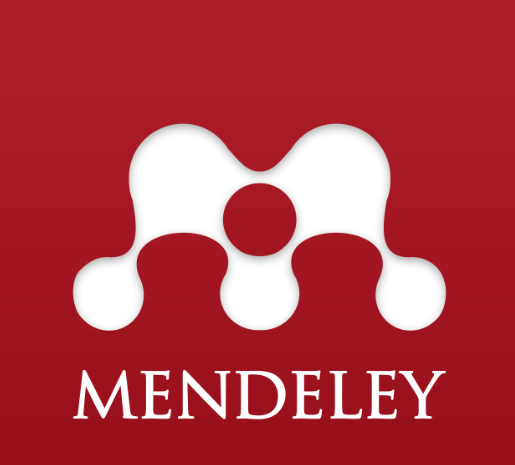DETERMINANT OF ISLAMIC SOCIAL REPORTING ON COMPANY REGISTERED AS INDONESIA SYARIA STOCK INDEX
DOI:
https://doi.org/10.22219/jmb.v9i2.10485Keywords:
leverage, profitability, Islamic Social Reporting.Abstract
The purpose of this study is to study several factors that influence the Islamic Social Reporting Company. These factors are company size and profitability. The variables in this study are company size and profitability, while the dependent variable is Islamic Social Reporting. The research method uses explanation research with a quantitative approach. The sample of this study is a company registered as the Indonesian Syariah Stock Index in 2016. The sample was selected by purposive sampling method which obtained 179 samples. Data Assumption Test for bias data bias bias. Test of Multiple Linear Regression Analysis, Determination Coefficient Test, Statistical Test and Statistical Test to test the hypothesis. Based on this research, it can be proven that leverage has a positive and insignificant effect on the Islamic Social Reporting Company in the form of the Indonesian Islamic Stock Index, while the positive and significant profitability of the Islamic Social Reporting Company in the form of the Indonesian Islamic Stock Index. In addition, leverage and profitability together have a positive and significant effect on the Islamic Social Reporting Company in the form of the Indonesian Islamic Stock Index.
Downloads
References
Gustani, 2015, Islamic Social Reporting (ISR) sebagai Model Pelaporan CSR. Institusi Bisnis Syariah, STIE SEBI.
Fitria, Soraya. & Dwi Hartanti. 2010. Islam dan Tanggung Jawab Sosial: Studi Perbandingan Pengungkapan berdasarkan Global Reporting Iniviative Index dan Islamic Social Reporting Index. Simposium Nasional Akuntansi Ke-13, Purwokerto.
Haniffa, R. 2002. Social Reporting Disclosure: An Islamic Perspective. Indonesian Management & Accounting Research. Vol. 1 (2): 128–146.
Haniffa, R. & Hudaib M. (2007). Exploring the ethical identity of Islamic banks via communication in annual reports. Journal of Business Ethics, 76(1), 97-116.
Ghozali, Imam. 2011. Aplikasi Analisis Multivariate Dengan Program IBM SPSS 19. Semarang: Badan Penerbit Universitas Diponegoro.
Gray, R.H., Owen, D. and Maunders, K., 1987, Corporate Sosial Reporting: Accounting and Accountability, London : Prentice-Hall International.
Janggu, T., 2004, Corporate social disclosure of construction companies in Malaysia, Master Thesis, Universiti Teknologi MARA
Lestari, Puji. 2013. Determinants of Islamic Social Reporting In Syariah Banks: Case of Indonesia. International Journal of Business and Management Invention, 2(10), 28-34.
Lewis, Linda & Jeffrey Unerman. 1999. Ethical Relativism: A Reason for Differences in Corporate Social Reporting. Critical Perspectives on Accounting. Vol. 10, p. 521-547
Othman, R. et.al. 2009. Determinants of Islamic Social Reporting Among Top Shariah -Approved Companies in Bursa Malaysia. Research Journal of International Studies. Vol. 12 (12): 4–20.
Othman, R., & Thani, A.M. 2010. Islamic Social Reporting of Listed Companies in Malaysia. International Business & Economics Research Journal, 12, 135-144. and Reporting by Listed Companies in Zimbabwe. The International Journal of Accounting, 33, 605-631.
Pramudinata, Andrian. 2015. Pengaruh Ukuran Perusahaan, Umur Perusahaan, Profitabilitas, dan Leverage Terhadap Pengungkapan Islamic Social Reporting pada Bank Umum Syariah di Indonesia. Skripsi Universitas Negeri Surakarta. Tidak dipublikasikan.
Pratama, A. Nur Abdi, Syaiful Muchlis, & Idra Wahyuni. 2018. Determinan Pengungkapan Islamic Social Reporting(Isr) Pada Perbankan Syariah Dengan Komisaris Independen Sebagai Variabel Moderating. AL-MASHRAFIYAH: Jurnal Ekonomi, Keuangan dan Perbankan Syariah, Vol.1, No.2 April 2018.
Putri, Tri Karina. 2014. Faktor-Faktor yang Mempengaruhi Islamic Social Reporting Perusahaan-Perusahaan yang Terdaftar Pada Indeks Saham Syariah Indonesia (ISSI) Tahun 2011-2012. Skripsi Universitas Diponegoro. Tidak dipublikasikan
Sembiring, Edy Rismanda. 2003. “Karakter Perusahaan dan Pengungkapan Tanggung Jawab Sosial: Study Empiris Pada Perusahaan Yang Tercatat Di Bursa Efek Jakarta”, SNA, 8, 2005, pp. 379-395.
Rama, Ali & Meliawati. 2014. Analisis Determinan Pengungkapan Islamic Social Reporting: Studi Kasus Bank Umum Syariah Di Indonesia. EQUILIBRIUM: Jurnal Ekonomi Syariah, Vol.2, No.1, 2014.
Ramadhani, Febri. 2016. Pengaruh Ukuran Perusahaan, Profitabilitas, Leverage Dan Ukuran Dewan Pengawas Syariah Terhadap Pengungkapan Islamic Social Reporting (Studi Empiris Pada Bank Umum Syariah Di Indonesia Tahun 2010-2014). JOM Fekon, Vol.3, No.1, Februari 2016.
Siwar & Hossain, 2009. An Analysis of Islamic CSR Concept and The Opinion of Malaysian Managers. Management of Environmental Quality : An International Journal Vol. 20 No. 3
Watts, Ross, Zimmerman, Jerold, L. 1986. “Positive Accounting Theory,” Prentice Hall, New Jersey. United States of America, 1986.
http://finansial.bisnis.com/read/20161002/9/588755/indeks-saham-syariah-indonesia-tumbuh-tertinggi-di-dunia diakses 20 juli 2017
https://beimediahariini.wordpress.com/2017/07/21/kapitalisasi-pasar-syariah-menggemuk/ diakses 20 juli 2017
Downloads
Published
Issue
Section
License
Authors who publish with this journal agree to the following terms:
- Authors retain copyright and grant the journal right of first publication with the work simultaneously licensed under a Creative Commons Attribution-ShareAlike 4.0 International License that allows others to share the work with an acknowledgment of the work's authorship and initial publication in this journal.
- Authors are able to enter into separate, additional contractual arrangements for the non-exclusive distribution of the journal's published version of the work (e.g., post it to an institutional repository or publish it in a book), with an acknowledgment of its initial publication in this journal.
- Authors are permitted and encouraged to post their work online (e.g., in institutional repositories or on their website) prior to and during the submission process, as it can lead to productive exchanges, as well as earlier and greater citation of published work (See The Effect of Open Access).

This work is licensed under a Creative Commons Attribution-ShareAlike 4.0 International License.




71.png)





